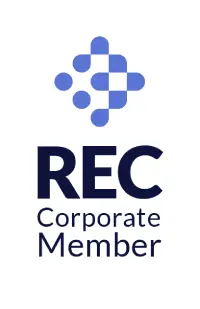Comparing the roles of a radiology nurse vs a radiologic technologist requires an explanation of the differences in their duties, education, and interaction with patients. Though both are very important roles within a radiology department, they focus on very different aspects of patient care and imaging.
Radiology Nurse
A Radiology Nurse is a specialist in the treatment of patients before, during, and after stereotactic procedures. This is their job description:
- Patient Education and Preparation: Radiology Nurses enlighten patients on the procedures, what to expect, and how to get prepared. Moreover, they perform IV lines, administer contrast agents, and observe patients for any reaction.
- Monitoring and Sedation: Monitoring and Sedation Radiology nurses work in monitoring the patient’s vital signs and health in general, particularly during procedures that require sedation or anesthesia. They undergo emergency response training, thus ensuring the safety of these patients all through the procedure.
- Interventional Procedures Assistance: Assistance for Interventional Procedures Radiology nurses, for example, assist in more complex procedures like biopsies and catheter placements through interventions like Interventional Radiology. They provide technical and patient care in these procedures.
- Post-Procedure Care: Following interventions, radiology nurses deliver continued monitoring, including assessments, pain management, and discharge instructions so recovery is smooth.
- Advanced Roles: Radiology nurses are able to expand their practice to many advanced opportunities where they can specialize, such as becoming an NP in radiology with advanced diagnostic procedures or various leadership roles, including the Nurse Manager or Director of Radiology Nursing.
Additional Read: More Men Join Nursing Ranks: Stereotypes Shattering
Radiologic Technologist
The Radiologic Technologist, on the other hand, deals with the technical aspects related to imaging procedures. They are also involved in:
- Operating Imaging Equipment: They are expected to correctly position patients to get the perfect images while at the same time ensuring that the imaging equipment works optimally. They operate using modalities such as X-ray, CT, MRI, and mammography.
- Cancer Care Safety: Radiologic technologists are trained in the tasks that reduce the spread of cancer during radiation treatment.
- Image Acquisition and Processing: These professionals are trained in taking quality images because part of the accuracy in diagnosis greatly depends on it. They also provide that first tier of assessment regarding the images to place them at a diagnostic level before transmitting them to be interpreted by a radiologist.
- Restricted Interaction with Patients: They do interact with their patients but are mostly involved in the imaging process by explaining the procedure, ensuring patient comfort, and ensuring proper patient positioning.
Collaboration and Career Advancement
Both do their job in collaboration with other health experts, but the line of their collaboration differs. Radiology nurses collaborate more with radiologists and anesthesiologists in the care administered to patients, often acting as an intermediary between departments. Compared to this, radiologic technologists collaborate more with radiologists about the technical details of the images.
Career advancement paths are very different as well. Radiology nurses can pursue certifications and advanced practice roles, while radiologic technologists may seek advanced imaging modality work or take on supervisory roles.
Wrapping UP
While both Radiology Nurses and Radiologic Technologists are at the core of radiology care, their focuses, training, and interactions with patients differ greatly. Making sure to understand these many differences can help guide individuals on the right path and choose the correct career that best fits their interests and skill levels.
Radiology nurses and radiologic technologists play distinct but complementary roles in patient care, with nurses focusing on patient preparation, care, and monitoring and technologists specializing in imaging procedures. Dynamic Health Staff bridges the gap by providing top-notch professionals in both fields, ensuring seamless collaboration and exceptional patient outcomes. Trust us to connect you with skilled radiology nurses and technologists who are dedicated to delivering the highest standards of care. Contact us today at enquiry@dynamichealthstaff.com or +919810017608 to know more.
Reach out to us today: Dynamic Health Staff!






